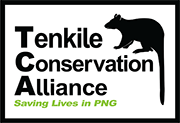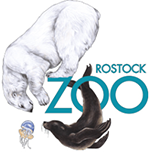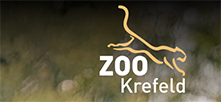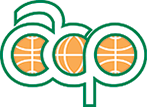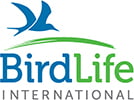Doria’s Tree Kangaroo



Family: Macropodidae
Genus: Dendrolagus
Species: dorianus
Characteristics: Sombre brown fur lacking silver tipping on the body fur. More adapted for arboreal life than other species of tree kangaroos.
Males: 13.3 kg (Average weight)
Females: 10.2 kg (Average weight)
Distribution: Southeastern New Guinea.
Elevation: 600 – 3000 meters above sea level.
Diet: Asplenium like epiphytic ferns and leaves.
Reproduction: Possibly breeds year round with perhaps a young born each year. Young become independent after 2 years.
Conservation Status: Vulnerable (IUCN)
Local Names: D’bol (Telefol, Sandaun Province), Dipolo (Tavade, Chimbu Province), Ugwa (Daribi, Chimbu Province), Yu (Pawia, Chimbu Province), Ifola (Kuni, Chimbu Province), Ndomea (Moni, West Papua), Naki (Amungme, West Papua), Weya (Dani, West Papua).
Social organisation
Evidence suggests that this species is crepuscular or diurnal. Captive studies have shown they are among the most social of all macropod species. They live in one male dominated group. Reports of six different vocal sounds by adults that play socially together with juveniles. Mother-daughter coalitions are formed.
Doria’s Tree Kangaroo (Dendrolagus dorianus). This sub-species is found in montane forests at elevations between 600-3650m and has a distribution of approximately 15,000 square kilometres. D.d.dorianus resides in south-eastern Papua New Guinea. It is dark brown in colour, is very robust and very large claws. It is a very heavy animal; males average 13.3kg and females 10.2kg. D.d.orianus have been kept in captivity, mostly within PNG, and have bred in the captive environment. Presently the only captive animals exist in PNG collections.

Doria’s Tree Kangaroo
(Dendrolagus dorianus)
Illustration – Peter Schouten
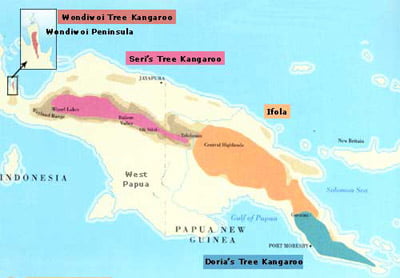
Distribution of the Doria’s Tree Kangaroo
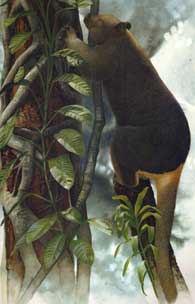
Doria’s Tree Kangaroo
(Dendrolagus dorianus)
Illustration – Peter Schouten
References: Mammals of new Guinea – Tim Flannery (1995) and Tree Kangaroos – a curious natural history – Tim Flannery, Roger Martin and Alexandra Szalay (1996). Illustrations Peter Schouten. http://www.iucnredlist.org/details/6435/0
Subscribe to our mailing list
There are many valuable ways in which you can contribute to the Tenkile Conservation Alliance’s vision – which is, the people of PNG value and protect their natural resources, their community and their culture.
Click 'Contribute' button above to learn more.
Subscribe to our mailing list
There are many valuable ways in which you can contribute to the Tenkile Conservation Alliance’s vision – which is, the people of PNG value and protect their natural resources, their community and their culture.
Click 'Contribute' button below to learn more.
